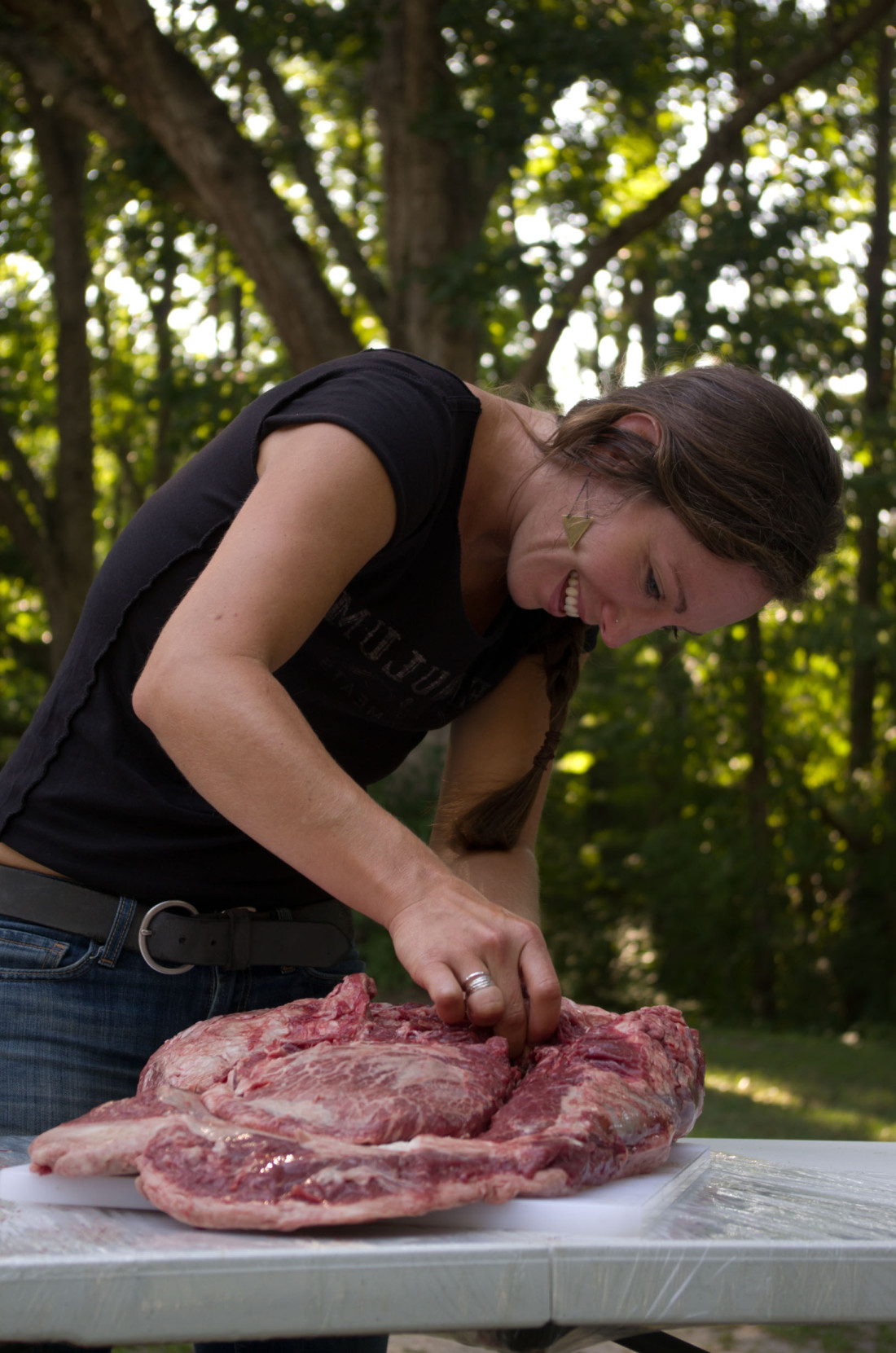Homesteaders, gardeners, farmers, and natural health enthusiasts convened on the campus of A-B Tech on Saturday, Sept. 12, for the second Organic Growers School Harvest Conference. The event is meant to extend the reach of the popular Spring Conference with a focus on fall and winter growing, home cooking, fermentation and preservation, self-reliance, herbal medicine, “backyard wonders” and homestead skills.
Participants could choose from 26 different workshop sessions from a variety of curated tracks. The conference offered four sessions throughout the day along with ample time for networking, browsing vendor booths, and snacking from the Taste and See food truck, which set up shop on-site for the day.
In addition to the main conference, the Harvest Conference also featured a pre-conference on Friday, Sept. 11, which offered more in-depth explorations of mycology, fermentation, natural building, and foraging.
The information presented at the Harvest Conference maintained the characteristic diversity that Organic Growers School brings to its events and allowed participants to reach beyond their own planes of knowledge and step out of their comfort zones.
Kelli Elizabeth Kuhn provided participants with a historical background of bone broth and explained the health benefits that could be gained by adding the broth to their diets. The workshop also embodied the conference’s self-reliance theme as Kuhn explained in detail how bone broth could be used to extend the number of meals from their purchases. Kuhn walked participants through a step-by-step tutorial on how they could render their own broths at home.
Local writer, butcher, farmer and cook Meredith Leigh used her conference session to highlight the ideas of her forthcoming book, The Ethical Meat Handbook: Complete Home Butchery, Charcuterie and Cooking for the Conscious Omnivore. Rather than focusing on the how-to motif found throughout the conference, Leigh guided participants through the farm-side economics of meat production and pointed out the deficiencies in the domestic livestock market. Leigh’s session demonstrated that farmers are bearing the brunt of the burden in producing ethical and sustainable meats and that committed and informed consumers are necessary to transform the food system.
Overall, the conference offered participants an opportunity to engage with a lifestyle which was more attune to the natural environment and more focused on individual health.




A whopping 43% of all organic food sold in America tests positive for prohibited pesticide residue, and three-quarters of all organic food is imported from countries like China. Can someone please explain how exactly this qualifies as “sustainable”?